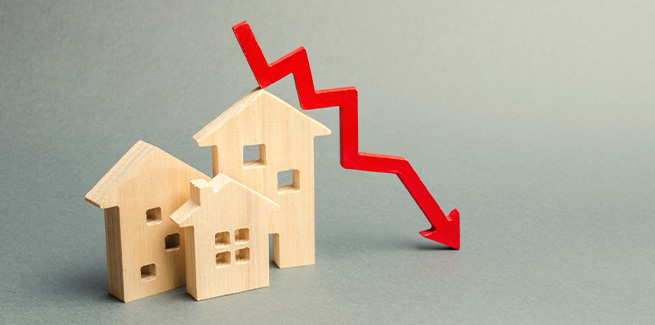The Australian Bureau of Statistics’ (ABS) building approvals data for July 2021 has shown that the seasonally adjusted estimate for total dwellings approved fell by 8.6 per cent in July to 17,601 (but is 21.5 per cent higher than last year).
This followed a 5.5 per cent decline in June, a 7.1 per cent fall in May and an 8.6 per cent drop in April.
The fall in July was driven by a 12.3 per cent decrease in private sector dwellings approvals excluding houses (down to a total of 5,679) and a 5.8 per cent fall in private sector houses (down to 11,671).
However, compared to last year, they were up by 12.4 per cent and 28.0 per cent respectively.
Across Australia, the number of dwellings fell in South Australia (down 17.9 per cent), Tasmania (down 15.3 per cent), Western Australia (down 11.3 per cent), Victoria (down 11.0 per cent), and NSW (down 9.9 per cent).
Queensland was the only state to record a rise, up by 9.0 per cent in seasonally adjusted terms.
Approvals for private sector houses fell in South Australia (down 23.9 per cent), Victoria (down 7.3 per cent), Western Australia (down 6.9 per cent) and NSW (down 4.2 per cent).
However, once again, Queensland recorded growth, with private house approvals rising by 8.3 per cent in seasonally adjusted terms.
The value of total residential building fell by 6.6 per cent over the month to $7.3 billion while new residential building fell by 7.6 per cent to $6.3 billion.
The value of total building fell by 15.9 per cent in seasonally adjusted terms to $10.8 billion.
Non-residential building approved fell by 30.5 per cent to $34.7 billion, and was 47.0 per cent lower than the peak recorded in March.
Commenting on the declines in approvals, ABS director of construction Daniel Rossi said: “Since the unwinding of stimulus measures and the return of lockdowns across parts of New South Wales and Victoria, approvals for private houses have fallen 24.4 per cent from the record high in April.
“Despite the fall, private house approvals remain at elevated levels and are 28.0 per cent higher than July 2020 and 36.0 per cent higher than July 2019.”
HomeBuilder washing through market: HIA
Analysis of the data by the Housing Industry Association (HIA) has shown that total dwelling approvals declined by 13.0 per cent in the three months to July 2021 compared to the previous quarter.
Detached approvals fell by 14.6 per cent and multi-unit approvals were down by 9.7 per cent, the analysis showed.
However, detached approvals were 43.2 per cent higher than the pre-COVID levels in the same quarter last year.
Multi-unit approvals were 39.0 per cent higher in the three months to July than the same time last year, which was the low point in the cycle. This was largely driven by approvals for semi-detached units and town houses.
Across the states, total residential building approvals declined at record levels in the three months to July 2021 compared to the previous quarter in Western Australia (down 27.3 per cent).
This was followed by Queensland (down 23.0 per cent), Tasmania (down 15.1 per cent), South Australia (down 10.4 per cent) and NSW (down 8.7 per cent). Approvals in Victoria were flat (up 0.3 per cent).
HIA economist Angela Lillicrap said that the declining trends have demonstrated the effects of the HomeBuilder scheme washing through the market.
“The data indicates that the majority of HomeBuilder projects have now finished the approvals process and will be commencing construction in the coming months,” Ms Lillicrap said.
[Related: Infrastructure costs shrink housing affordability: NHFIC]
 ;
;
